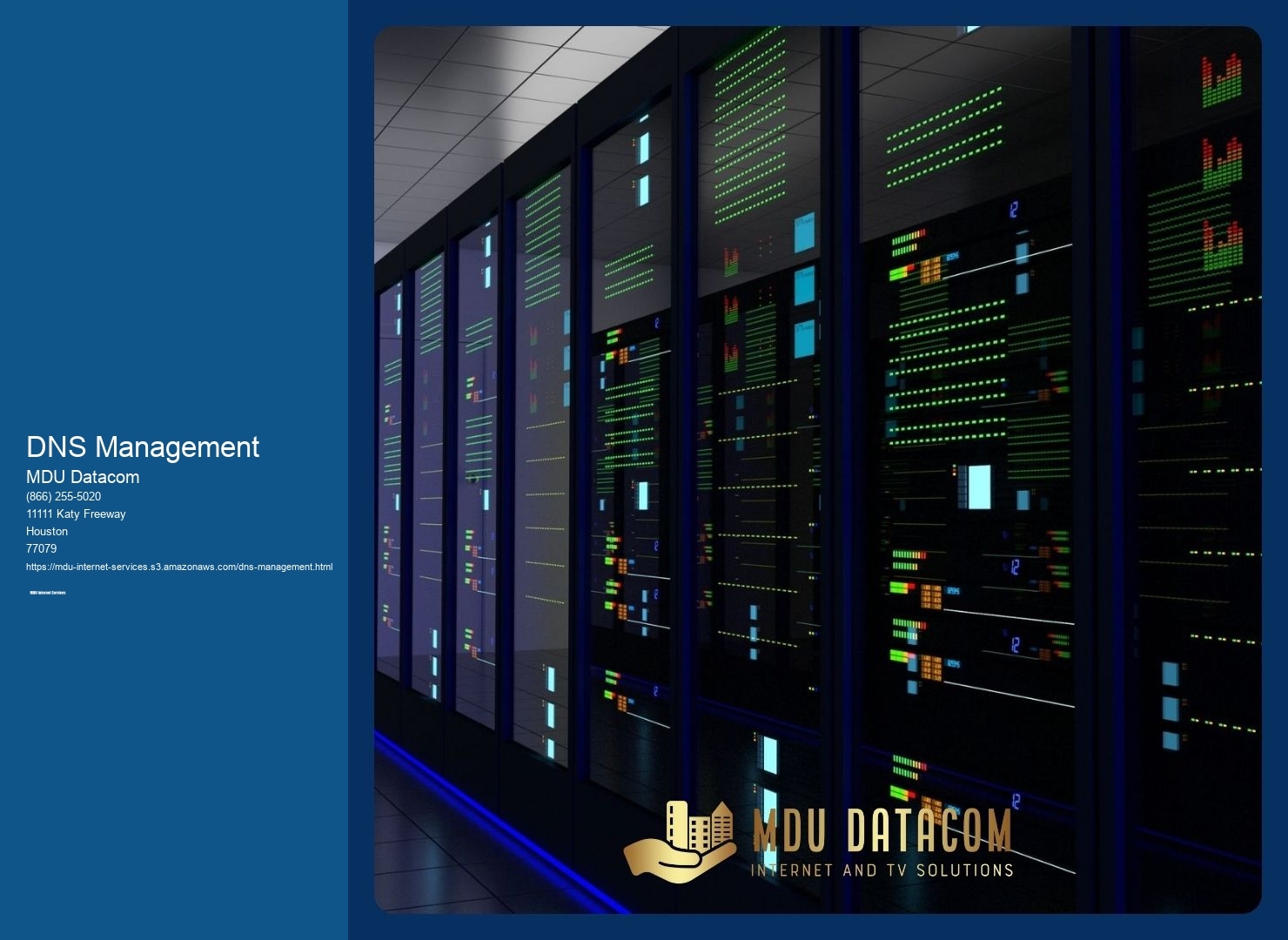

DNS management refers to the process of configuring and maintaining the Domain Name System (DNS) settings for a website. It involves tasks such as adding, modifying, or deleting DNS records, managing domain names, and configuring DNS servers. DNS management is important for website owners because it allows them to control how their domain name is associated with their website's IP address. This is crucial because DNS is responsible for translating human-readable domain names into machine-readable IP addresses, allowing users to access websites by typing in a URL instead of a series of numbers. Without proper DNS management, website owners may experience issues with website accessibility, email delivery, and other online services.
DNS resolution is the process of converting a domain name into an IP address. When a user enters a domain name in their web browser, the DNS resolver (usually provided by the Internet Service Provider) initiates the resolution process. DNS management plays a crucial role in this process by providing the necessary DNS records that map the domain name to the corresponding IP address. These records, such as A records, CNAME records, and MX records, are stored in DNS servers and are retrieved during the resolution process. DNS management ensures that the correct DNS records are in place, allowing the resolver to successfully resolve the domain name and establish a connection to the website.
There are several common DNS record types used in DNS management. The A record (Address record) is used to map a domain name to an IPv4 address. The AAAA record (IPv6 Address record) is similar to the A record but is used for mapping a domain name to an IPv6 address. The CNAME record (Canonical Name record) is used to create an alias for a domain name, allowing multiple domain names to point to the same IP address.

DNS management can help in load balancing and improving website performance by utilizing DNS-based load balancing techniques. With DNS management, website owners can configure multiple IP addresses for a single domain name using multiple A records. When a user requests the domain name, the DNS resolver receives multiple IP addresses and can distribute the traffic across these addresses, effectively balancing the load. This can help distribute the workload among multiple servers, improving website performance and reducing the risk of server overload.
There are potential security risks associated with DNS management. One common risk is DNS hijacking, where an attacker gains unauthorized access to DNS settings and redirects traffic to malicious websites. This can lead to phishing attacks, malware distribution, and other malicious activities.

DNS management can be used to implement email routing and ensure reliable email delivery. By configuring MX records, website owners can specify the mail servers responsible for handling incoming emails for their domain. DNS management allows them to set the priority (preference) of these mail servers, determining the order in which they are contacted. This enables website owners to implement email routing strategies, such as using multiple mail servers for redundancy or directing emails to different servers based on specific criteria. DNS management also allows for the configuration of SPF (Sender Policy Framework) records, which help prevent email spoofing and improve email deliverability by specifying the authorized mail servers for a domain.
Property Internet SolutionsTo ensure high availability and minimize downtime, there are several best practices for DNS management. Community-Wide Wi-Fi Networks Firstly, it is important to have redundant DNS servers in different geographical locations to provide backup and improve resilience. This can be achieved by using multiple DNS providers or setting up secondary DNS servers. Regular monitoring of DNS servers and DNS records is crucial to detect and resolve any issues promptly. It is also recommended to implement DNS caching to reduce the load on DNS servers and improve response times. Additionally, regular backups of DNS configurations and records should be performed to ensure quick recovery in case of any data loss or accidental changes. Finally, keeping DNS software and firmware up to date with the latest security patches is essential to protect against potential vulnerabilities.

MDU, or Multi-Dwelling Unit, handles relocation requests for internet services within the same property by following a streamlined process that ensures minimal disruption for the residents. When a relocation request is received, MDU promptly assigns a dedicated team of technicians who specialize in handling such requests. These technicians possess extensive knowledge of the property's infrastructure and are well-versed in the intricacies of relocating internet services. They work closely with the residents to understand their specific requirements and develop a customized relocation plan. This plan takes into account factors such as the availability of existing wiring, the proximity of the new location to the network infrastructure, and any potential obstacles that may need to be overcome. By leveraging their expertise and utilizing advanced tools and equipment, MDU ensures a smooth and efficient relocation process, allowing residents to seamlessly transition their internet services to their new location within the same property.
There are certain limitations that may arise when using internet-connected devices or appliances with MDU internet services. These limitations can vary depending on the specific MDU internet service provider and the infrastructure in place. One limitation could be the bandwidth capacity of the internet connection, which may affect the performance of multiple devices simultaneously connected to the network. Additionally, there may be restrictions on the types of devices that can be connected, such as limitations on the use of certain protocols or the need for specific authentication methods. Security measures may also limit the access or functionality of certain devices to protect the network and user privacy. It is important for users to consult with their MDU internet service provider to understand any limitations or requirements when using internet-connected devices or appliances.
During peak moving seasons, MDU does offer special promotions and discounts for tenants. These promotions are designed to attract new tenants and incentivize current tenants to renew their leases. MDU understands that moving can be a stressful and expensive process, so they aim to alleviate some of the financial burden by offering discounted rent, waived application fees, and even free moving services. Additionally, MDU may offer other perks such as gift cards, gym memberships, or discounted utilities to further entice potential tenants. These promotions are typically advertised through various channels, including the MDU website, social media platforms, and local advertisements. By offering these special promotions and discounts, MDU aims to make the moving process more affordable and enjoyable for their tenants.
Peer-to-peer file sharing or torrenting may be subject to certain limitations when using MDU internet services. These limitations can vary depending on the specific terms and conditions set by the internet service provider (ISP) for their MDU services. Some ISPs may implement traffic management policies that prioritize certain types of internet traffic over others, which could potentially affect the performance of peer-to-peer file sharing or torrenting. Additionally, ISPs may also impose data caps or bandwidth restrictions that could limit the amount of data that can be downloaded or uploaded through peer-to-peer networks. It is important for users to review the terms of service or acceptable use policy provided by their ISP to understand any potential limitations or restrictions on peer-to-peer file sharing or torrenting.
MDU does not currently offer any special promotions or discounts specifically for residents who advocate for digital inclusion initiatives within communities. However, MDU recognizes the importance of digital inclusion and is committed to providing affordable and reliable internet services to all residents. They actively work towards bridging the digital divide by offering competitive pricing, flexible plans, and high-speed internet options. Additionally, MDU collaborates with local organizations and government agencies to support digital literacy programs and initiatives that promote digital inclusion within communities.